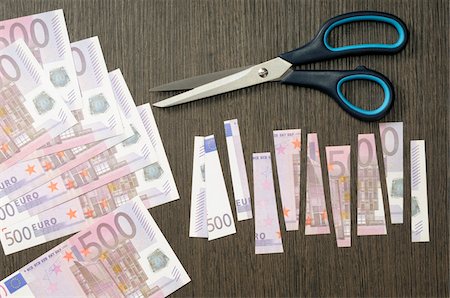The positive Target2 balance of Germany has long surpassed the 1 trillion Euro mark, in August of last year, in fact. This means that the Bundesbank is carrying in excess of 1 trillion of receivables vis-a-vis the ECB, German surplus funds from current as well as capital account that had to be re-channeled back into peripheral deficit countries by way of the euro system, or else the common currency would no longer exist.
The magnitude of such imbalance is predominantly owed to double deficits out of peripheral nations, ie it is not just the trade deficit with Germany that they are being plagued by, it is a capital flight up north that has in many cases turned the capital account negative as well. In a real world with individual currencies for either countries, such aberration would be balanced out by an FX depreciation of the deficit nations.
Over the past few months, Germany’s positive as well as the respective negative Target2 balances in the periphery have no longer diverged and consolidation of sorts set in. This has been a hopeful sign and coincided with the appointment of former ECB head Mario Draghi to become Italy’s prime minister. If anyone, Draghi brings along the pedigree to clean up his country’s economy and bureaucracy and is probably best positioned to implement highly necessary reforms.
Also, curiously, Draghi has the incredible chance of emerging as a political heavyweight within Europe. Emmanuelle Macron is struggling and faces a show-down with Marine LePen at next year’s election. Germany is even closer to an armageddon-like scenario. The scandal-ridden CDU has been falling in the polls. Squabbles about who should succeed Angela Merkel post the September elections have left scars. And a Green-Left-Social Democratic Party coalition has never been closer.
No wonder then that some individuals and enterprises would have opted to bring money home and arrest the accelerating double deficit and diverging Target2 balance situation. The net effect, however, was never sufficient to suppress Germany’s positive balance below the 1 trillion mark. On the contrary, it appears that March’s number is on the rise again and the balance now holds at close to 1.08 trillion Euros.
What is happening? Was the consolidation just a fluke, and is the Draghi pull too weak? That I refuse to believe. Draghi is Italy’s last chance, and he could turn out to be the EU’s and the eurozone’s last chance too. The problem with this statement is that Europe can only be fixed by the biggest debt restructuring in history, at the expense of the German taxpayer and then only for the short- to medium-term.
The easiest way to achieve a financial reset of sorts would be to apply a haircut to Target2. While politicians like Matteo Salvini would have forced such restructuring by threatening to pull Italy from the eurozone, with disastrous consequences, Draghi may be able to persuade if not convince his northern neighbour to simply agree to it. Not that he is not the master of European monetary policy. He helped engineer this straight jacket that there is no escape from.
Also, a discounting of respective receivables and liabilities would arrest the gargantuan rise of the eurosystem’s balance sheet that has gone vertical recently and reached a size of 7.5 trillion Euros, significantly higher in dollar terms than the Fed’s and BoJ’s. And finally, such action may begin to release some excess liquidity that commercial banks have still stubbornly parked as deposits with the ECB, a whopping total of 4.13 trillion that is, and at a punitive negative yield of -50bp mind you.
Estimates are that for the purpose of safeguarding the functioning of goods and capital markets a mere 250-300 billion of bank deposits with the ECB are needed. The difference is simply ultra-excess liquidity imposed on the banks, one they aren’t willing to employ or the economy doesn’t need or simply refuses to accept.
A debt restructuring orchestrated by Draghi and his successor at the ECB helm Christine Lagarde would be disastrous for Germany, as teutonic national wealth is destroyed in the process, but it could present a glimmer of hope to unlock fund flows to potentially reverse those grave and unsustainable disequilibrium.
